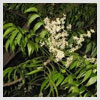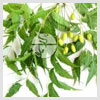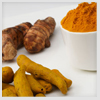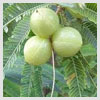Home Remedies for Wounds
Medically, a wound cannot be defined as a disease but rather a condition in which the body tissue breaks up, cutting off the continuity of the flesh or skin. A wound can either be internal or external but external ones are the most common as they involve the breaking of the skin membrane. Internal wounds are also common but they are more dangerous as curing or treating them is more difficult compared to external wounds. There are various causes of wounds, either internal or external, but they mostly occur as a result of physical forces exerted on the skin that result in its rupture. Forces exerted on the skin that may cause wounds include sharp objects, blunt objects, tools, falling or any form of accident. Small children are more often wounded due to their habit of playing as compared to adults who receive most wounds as a result of accidents.
At times, wounds can be very dangerous as they can cause a major dysfunction of some vital part of the body if not treated as soon as possible. Since wounds result from tears in the skin, they expose the body to many infections from germs and from harmful bacteria which can pass through the wound into the internal organs. It has been noted that diseases such as tetanus are passed into the body through wounds or broken skin. On the other hand, wounds resulting from cuts or tears in the body tissue can result in death through bleeding. The fluid and blood in the body is contained in an enclosed system and has a certain amount of pressure. If the system has a leak, blood may ooze out through this opening, thus making the body contain insufficient blood to carry out most functions in the body.
There are various types of wounds that are common and severe to humans if immediate medical care is not obtained or natural remedies for their treatment are not followed. Abrasions are wounds that are caused by the scraping of the skin which damages it. Abrasions can be caused by many factors such as falling and scraping rough objects against the skin. Abrasive wounds can be harmful to the body as they pose a greater danger of infection by germs or bacteria. Incisive wound are caused by cuts from sharp objects such as knives, broken glass or metal edges. Incisions can lead to excess bleeding, infection by bacteria and germs and may also damage the body muscles.
An avulsion is another type of wound that is caused mainly by animal bites, heavy machines, motor vehicle accidents or guns. Avulsion involves forceful separation of tissue from the body which can be fatal as it results in excessive bleeding. If quick action is not taken, death can result within minutes. Punctures are the type of wound that is caused by sharp objects such as pins, nails and bullets. These wounds may cause internal bleeding and can also lead to infection by germs such as tetanus if natural remedies for wounds are not administered. It is therefore necessary to look at the alternative home remedies for wounds before matters get out of hand since these wounds can cause complications that may be fatal.
Home Remedies for Wounds
Margosa Leaves as a Natural Remedy for Wounds
 Properties: Margosa leaves have some healing properties when applied to a wound as it facilitates dryness within a few hours of application. This herb is also quite useful since it has some very powerful properties that help the wound to be free from any form of germ, bacteria and all manner of infection. This remedy can be used on external wounds such as abrasions and avulsions as it will take only a few days to heal.
Properties: Margosa leaves have some healing properties when applied to a wound as it facilitates dryness within a few hours of application. This herb is also quite useful since it has some very powerful properties that help the wound to be free from any form of germ, bacteria and all manner of infection. This remedy can be used on external wounds such as abrasions and avulsions as it will take only a few days to heal.
Use of Margosa as a Cure for Wounds:
Making this remedy is very easy as it does not involve many activities. Clean a few leaves of margosa (about 100 grams of them) and then mix with half a liter of water. Boil the mixture for 15 minutes until the concoction changes color. After boiling, sieve the mixture with a clean cloth and let the concoction cool. Use a clean cotton cloth to wash and clean the wound with this remedy for few days. Use of margosa leaves as a treatment for wounds will take a few days to heal depending on the nature of the wound.Garlic as a Home Remedy for Wounds
 Properties: Garlic is one of the ancient home remedies for wounds as it can be traced back to the Chinese and the Greeks who used it to treat wounds inflicted during battle. Garlic has some very important properties that help the wound to dry and heal faster than without any treatment other than cleaning it. Garlic also contains some very useful properties which are antibiotic and guard the wound against infection from bacteria and other germs. Garlic can also be included in one’s diet for the day as it can help greatly in healing internal wounds.
Properties: Garlic is one of the ancient home remedies for wounds as it can be traced back to the Chinese and the Greeks who used it to treat wounds inflicted during battle. Garlic has some very important properties that help the wound to dry and heal faster than without any treatment other than cleaning it. Garlic also contains some very useful properties which are antibiotic and guard the wound against infection from bacteria and other germs. Garlic can also be included in one’s diet for the day as it can help greatly in healing internal wounds.
Use of Garlic as a Treatment for Wounds:
This remedy is among the easiest remedies to make as one only need to mix about three to four cloves of garlic with a cup of wine using a blender. After mixing, let the concoction sit for a period of three hours and then strain it. Use a clean cloth to apply the mixture onto the wound three times a day. It is essential to note that garlic can be irritating to the skin if left on for more than 25 minutes; therefore it is necessary to clean it off a few minutes after applying. When choosing the best home remedy for a wound, then consider garlic due to its properties which help in healing the wound quickly.Honey as a Home Remedy for Wounds
 Properties: Honey has been in use for centuries as a way of treating external wounds and is still being used today. It has been noted that honey contains some preservative properties and is thus used on wounds to keep germs, bacteria and infection from the wound. Honey also catalyses the drying of the wound and in the end helps to cure the wound faster. Use of honey has been common as it can be used by either young or old people and is also cheaply and commonly available in many places around the world.
Properties: Honey has been in use for centuries as a way of treating external wounds and is still being used today. It has been noted that honey contains some preservative properties and is thus used on wounds to keep germs, bacteria and infection from the wound. Honey also catalyses the drying of the wound and in the end helps to cure the wound faster. Use of honey has been common as it can be used by either young or old people and is also cheaply and commonly available in many places around the world.
Use of Honey as a Cure for Wounds:
It is very easy to use honey as a treatment for wounds. Just put a few droplets of honey in a container and then warm it to make it semi-liquid. Apply honey to the wound using a clean cloth three times a day and it can take less than 10 days for the wound to heal, although much depends on the magnitude of the wound.Neem Leaves as a Natural Remedy for Wounds
 Properties: Neem leaves have some antibiotic properties and thus are very useful in treating open external wounds. This remedy has been in use for ages to treat wounds, bruises and sores on the skin because of these properties. Not only that, neem leaves assist in the clotting of blood, making it very useful on fresh wounds resulting from cuts. Neem leaves also play a big role in making the wound dry faster and in the end speeds up the cure.
Properties: Neem leaves have some antibiotic properties and thus are very useful in treating open external wounds. This remedy has been in use for ages to treat wounds, bruises and sores on the skin because of these properties. Not only that, neem leaves assist in the clotting of blood, making it very useful on fresh wounds resulting from cuts. Neem leaves also play a big role in making the wound dry faster and in the end speeds up the cure.
Use of Neem Leaves as a Cure for Wounds:
Pluck about 50 grams of freshly grown neem leaves. Then soak the leaves with a half-kilogram of ghee, especially that of a cow, and then heat slowly using a moderate temperature. The mixture should be warmed for a few minutes until the leaves change color. After turning color, mix them together into a fine paste. Look for a clean cloth material and use it to apply the paste to the wound. Applying two times a day will be sufficient as it takes between five to ten days to heal the wound.Mustard Oil as a Home Remedy for Wounds
 Properties: mustard oil is useful as it has some very powerful properties that are antibacterial thus reducing all sort of infection through an open wound. Mustard oil also acts as an antiseptic in cleaning the wounds from all sorts of germs and dirt thus increasing the rate of healing. Mustard oil do also help to dry the wound and the same time increases the rate of healing as its takes a while for a wound to heal if it is wet. Mustard oil can be used on fresh wounds resulting from fresh cuts as the remedy helps a lot in containing loss of blood due to the fact that it aid in blood clotting.
Properties: mustard oil is useful as it has some very powerful properties that are antibacterial thus reducing all sort of infection through an open wound. Mustard oil also acts as an antiseptic in cleaning the wounds from all sorts of germs and dirt thus increasing the rate of healing. Mustard oil do also help to dry the wound and the same time increases the rate of healing as its takes a while for a wound to heal if it is wet. Mustard oil can be used on fresh wounds resulting from fresh cuts as the remedy helps a lot in containing loss of blood due to the fact that it aid in blood clotting.
Use of Mustard Oil as a Treatment for Wounds:
Warm the mustard oil together with turmeric for a few minutes. Then apply the oil to the wound and also to the surrounding areas. The remedy should be applied twice a day and positive results will be seen after a few days of use. Mustard oil also helps in relieving the pain of the wounds and also helps to contain swelling around the wound. If used well, mustard oil is among the most effective home remedies for wounds as well as for sores.Turmeric as a Natural Remedy for Wounds
 Properties: Turmeric has been among the best and most commonly used natural remedies for wounds. It has powerful properties that help the wound to heal faster by drying it out. Turmeric also contains some antibiotic properties which keeps germs from entering the body through the wound. Not only that, turmeric helps to relieve the pain and swelling resulting from wounds in a matter of days.
Properties: Turmeric has been among the best and most commonly used natural remedies for wounds. It has powerful properties that help the wound to heal faster by drying it out. Turmeric also contains some antibiotic properties which keeps germs from entering the body through the wound. Not only that, turmeric helps to relieve the pain and swelling resulting from wounds in a matter of days.
Use of Turmeric as a Cure for Wounds:
Making a remedy from turmeric does not involve a lot of processes compared to other remedies. In the case of external wounds, apply turmeric powder to the wound on a daily basis and within ten days, the wound will have healed. Turmeric is one of the best natural remedies for wounds as it can be used to cure internal wounds as well. Mix hot milk with one spoonful of turmeric powder and then drink it to treat an internal wound.Indian Gooseberry as a Home Remedy for Wounds
 Properties: Indian gooseberry, also known as amla, is among the most ancient home remedies for wounds that are still being used today. It has antibiotic properties, thereby blocking germs and bacteria from entering the body through the wound. Amla also has some powerful antiseptic properties which help to cleanse the wound of dead and decaying tissue and also causes the wound to dry quickly.
Properties: Indian gooseberry, also known as amla, is among the most ancient home remedies for wounds that are still being used today. It has antibiotic properties, thereby blocking germs and bacteria from entering the body through the wound. Amla also has some powerful antiseptic properties which help to cleanse the wound of dead and decaying tissue and also causes the wound to dry quickly.
Use of Indian Gooseberry as a Cure for Wounds:
The fruits of this herb are the most useful part of the plant as a treatment for wounds. Crush the mature Indian gooseberry fruit that is not overripe and extract the juice. The juice can be used as either a cure for internal wounds and also for external wounds. Drinking 50 ml of the juice twice a day will be enough to treat the internal wounds within a matter of days. Applying the juice with a clean cloth to an external wound three times a day will provide the desired relief and cure the wound.Other Home Remedies for Wounds
There are a couple of useful home remedies for treating wounds but one should determine whether the remedies are being used to treat internal or external wounds.
Onions play a big role in healing wounds as they have some very powerful properties that assist in quick healing. Onion is among the most useful and commonly found natural remedies for wounds as it is cheaply found in almost each and every home. Onion is mostly used on abrasions as they offer relief within a matter of days. Mince the onions and then apply them on the wound and make sure not to touch other parts of the body. It is also necessary to include onions in one’s diet for the day as it can play a big role as a home remedy for the treatment of internal wounds.
Camphor is used to treat fresh wounds resulting from cuts as it has some very powerful properties which help the blood to clot. It also has some powerful properties that help to relieve pain and swelling around the wound. Make a powder from camphor and sprinkle it on the wound as well as areas around the wound.
Another important natural remedy for wounds that has been found to be useful is alum. Alum helps to contain blood loss through clotting and at the same time helps to dry the wound. The other important properties contained in alum are its antibiotic and antiseptic properties.
Diet for Curing Wounds
When suffering from either internal or external wounds, it is necessary to eat food that is rich in vitamins. A good diet for curing wounds is one containing vitamins such as C, E and B6 as they play a large part in helping the blood to clot in the case of fresh wounds resulting from cuts. Fruits such as oranges, mangoes, paw paws and pineapples, among other citric fruits, are a wonderful source of these vitamins.
Another good diet for curing wounds contains proteins as they are responsible for tissue development in the body. When a wound is sustained, the fresh tissue around the area rots and needs to be replaced immediately. Proteins act as a builder of body tissue to both internal and external wounds. However not all types of protein should be consumed in a diet for curing wounds. Those proteins containing amino acids should be eaten as they play a big role in the formation of new skin and also in building muscles. Eat a protein-enriched diet including foods such as eggs, fish, poultry, milk, soya and cheese. Other foods to include in a diet for curing wounds are most legumes, vegetables, nuts and grains though the content of amino acids is not as high as that of animal protein.
| Add your Home Remedy below.. | |

